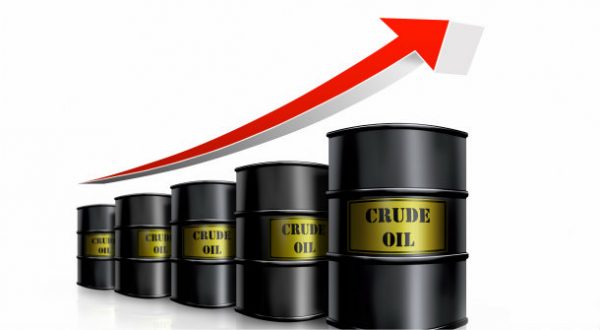
The rise in the prices may also lead to additional savings from earnings above the budget bench mark of $60 a barrel for the 2022 budget, in addition to enabling the country pay off its foreign debts as they fall due.
However as Nigeria imports it refined petroleum, the cost of subsidy will increase more than is being provided for in the budget. So government may be forced to abandon its plan to keep subsidy in place.
Brent was on track for its highest close since June 2014 and WTI for its highest close since May 2011.
During the week, Brent rose to its highest intraday since May 2012 and WTI its highest since September 2008. Crude prices post their strongest weekly gains since the middle of 2020, with the U.S. benchmark up more than 22% and Brent 16%.
“Russia’s invasion of Ukraine means that fears over supply will remain front and centre,” said Stephen Brennock of oil broker PVM, though he added that there is “a new sense of urgency” to revive the Iranian nuclear deal. Oil jumped about 4% on Friday in a volatile session as fears that Western sanctions would disrupt Russian exports outweighed hopes for more Iranian supply if Washington reaches a nuclear deal with Tehran.
Crude prices rallied after Russian troops seized Europe’s biggest nuclear power plant. A blaze in a training building was extinguished and officials said the facility was now safe. Indirect talks between Iran and the United States on reviving the 2015 Iran nuclear deal are close to reaching an agreement, the chief British envoy said on Friday as she and her French and German colleagues flew home to brief ministers. “Iran claims they will be able to ramp up production quickly, but the potential disruptions of Russian supplies is too big of a shock for energy markets,” said Edward Moya, senior market analyst at OANDA.
On Thursday prices swung in a $10 range but settled lower for the first time in four sessions as investors focused on the revival of the Iran nuclear deal, which is expected to boost Iranian oil exports by as much as 1 million barrels per day (bpd) and ease tight supplies. Still, Iran’s Foreign Minister Hossein Amirabdollahian said on Friday that the West’s “haste” to reach a nuclear agreement “cannot prevent the observance of Iran’s red lines,” including economic guarantees. Oil prices are rising on fears that Western sanctions over the Ukraine conflict will disrupt shipments from Russia, the world’s biggest exporter of crude and oil products combined. Trading activity for Russian crude has slowed as buyers hesitate to make purchases because of sanctions against Russia while U.S. President Joe Biden comes under growing pressure to ban U.S. imports of Russian oil.
More oil supplies are set to be added from a coordinated release of 60 million barrels of oil reserves by developed nations, agreed this week. Japan said on Friday that it plans to release 7.5 million barrels of oil. Also supporting oil prices this week, Libya’s National Oil Co (NOC) temporarily halted exports from four ports due to bad weather, it said on Thursday. Libya, an OPEC member, produced about 1.2 million bpd of crude in 2021, according to U.S. energy data.
Source: Business News Report.